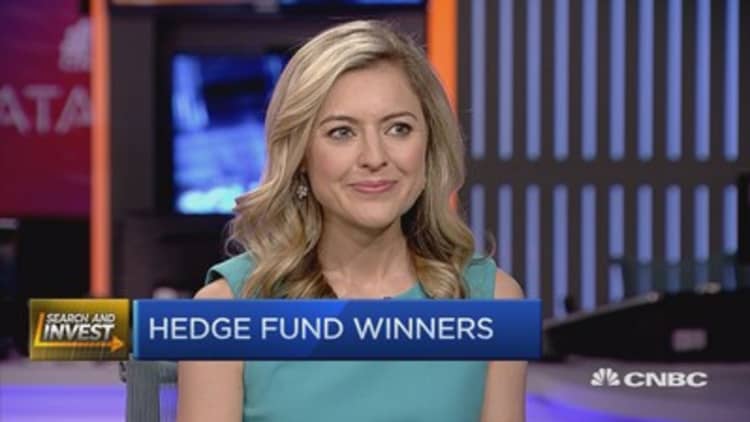
Oil prices are not capped around $55 as is widely assumed but rather are on track to hit $70 per barrel later this year, according to Pierre Andurand, managing partner at Andurand Capital Management.
We're currently at a crossroads from where oil prices should significantly rebound, Andurand told CNBC on the sidelines of an event Thursday evening where he was crowned the winner of the EMEA Investor's Choice Awards for 2017.
"I think oil prices are likely to recover to around $70 … I think the market will switch to backwardation – sustainable backwardation – by late summer and that will bring the next wave in oil prices," he said, referring to the situation where nearer-term spot price oil contracts are more expensive than longer-dated forward contracts.
Andurand is widely known for his bearish call on oil prices in the mid-2000s, delivered ahead of the drastic sell-off which saw WTI prices plummet from close to $150 in July 2008 to trade in the $30s a mere five months later.
Hence why his switch from oil bear to oil bull has particularly caught the market's attention. Andurand worked up his position last year and said that while he has been surprised by the somewhat rangebound nature of trade so far in 2017 – indeed, during the first two months of this year his fund position suffered from being caught off-guard by this dynamic - he believes there is a solid explanation for why it will not persist.
"U.S. shale producers have been hedging a lot of their production, capping prices, so the improvements in fundamentals were not priced in at all, but I believe that now when people will really see that inventories are going down fast, that eventually the fundamentals will win and prices will go higher," he suggested.
With regards to the "will they or won't they" question front-and-center of market participants' minds, Andurand claims that the final decision on whether oil producers will extend their agreement to stem output levels when it comes up for renewal on May 25 is down to the price level. The agreement signed last November between both OPEC and non-OPEC oil producers setting caps in order to control the amount of supply unleashed onto the market is currently the subject of intense speculation as to whether it will be deemed by participants to have been sufficiently successful to justify a renewal.
"I think if we are roughly at these kind of prices or a few dollars higher I think they will extend it. If we're at $65, they probably will not," the French hedge fund manager opined.
"But I think we will be higher by then because it will be obvious to everybody that inventories are going down and the OPEC cut really worked," he added.
Turning to politics, Andurand played down the influence that U.S. President Donald Trump could potentially wield over the oil price, saying that there is little the new leader can do in the short term to affect supply growth.
However, adding a qualification to that view, he highlighted the president's role in geopolitics and the follow-on effects of those dynamics on the oil price being factors on which to keep a close eye.
"I don't think Trump has much impact on oil supply and demand for now. If there is going to be a big change it's going to be with Iran - if he puts sanctions back on Iran," he said.



